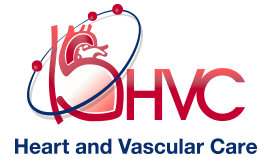Cardioversion
Alpharetta Cardioversion
For invasive procedures, you would be under the best of care with our physicians who have served as Directors of the Cardiac Catheterization Laboratories at Northside Hospitals Forsyth and Cherokee where they pioneered coronary angioplasty and stenting. Our specialists perform the following procedures at Northside Hospital Forsyth, Northside Hospital Cherokee, Emory Johns Creek Hospital, and St. Joseph’s Hospital of Atlanta.

Cardioversion: Resetting Your Heartrate
If you suffer from arrhythmia, your doctor may recommend treating it by resetting your heart rate. This procedure is called cardioversion or defibrillation. Used to treat both atrial fibrillation (AFib) and atrial flutter (AFlutter), cardioversion uses an electric shock sent through your heart to change its irregular heart rhythm back into a normal one.
Who is a candidate for cardioversion?
If you suffer from AFib or AFlutter, your doctor may recommend trying cardioversion before some other more invasive procedure. Some people who suffer from AFib and AFlutter have no symptoms at all. Others have palpitations, fluttering, shortness of breath, chest pain, low blood pressure, difficulty breathing and trouble with fainting. Those who have these problems are prime candidates for cardioversion.
What is cardioversion?
Cardioversion involves briefly interrupting your heart’s beating to restore it to a regular rhythm. Two types of cardioversion are available for your doctor to use.
- Chemical cardioversion. With chemical cardioversion, your doctor will use an antiarrhythmic medication to alter the flow of electricity in your heart. This procedure may be done as an outpatient or in a hospital under the supervision of hospital staff.
- Electrical cardioversion. Electrical cardioversion uses an electrical current to reset the right rhythm of your heart. This procedure will be done in a hospital where your oxygen, blood pressure, and heart rate can be monitored. Through an IV, you will be sedated, and the doctor will place two electrical stickers or paddles, one on your chest and one on your back, through your heart. Once the patient is deeply sedated, often a special type of ultrasound camera called a tranesophageal echocardiogram is inserted into the mouth to make sure there are no blood clots in the heart. Then right away a quick, precisely timed shock is administered. This shock interrupts your heart beat, resetting your heart to a normal rhythm. It is 90 percent effective.
Are there any risks?
Because the condition that requires cardioversion is AFib, the top chamber of your heart are generally “quivering.” This can allow blood clots to form. In order to keep any of these clots from breaking free and clogging an artery to your brain causing a stroke, your doctor may prescribe a blood thinner or anticoagulant to be taken prior to and after the cardioversion.
What is the preparation for the procedure?
On the day of the cardioversion, you will need to have someone drive you to and home from your appointment. You will need to fast for at least 8 hours prior to the procedure. You should still take your regular medications unless your doctor tells you otherwise.
